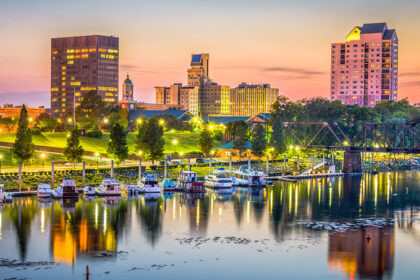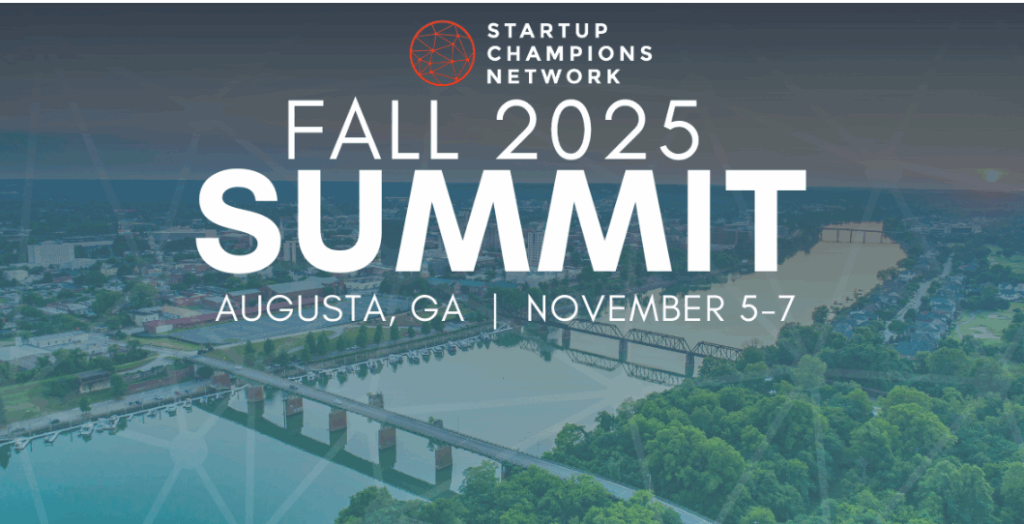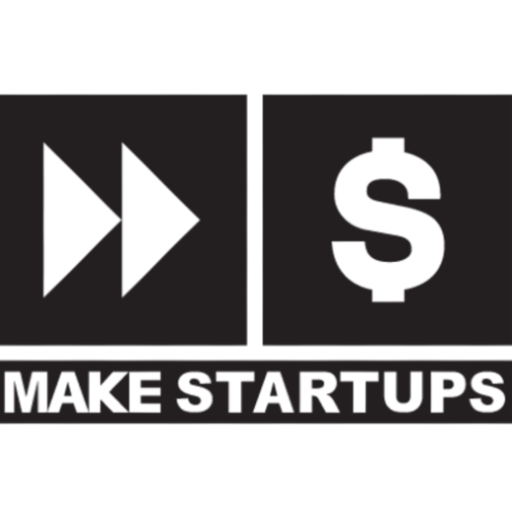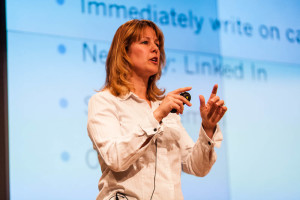
In just a little less than a month, in Augusta, Georgia, the nation’s top startup ecosystem builders and national ecosystem support organizations convene to gain insight from real world case studies, and explore and experience new communities, against the backdrops of some of the nation’s top emerging ecosystems. This is the time of year for everyone to head this direction, here in Texas, it’s startup season so amidst Dallas this week, San Antonio too, Houston again, and all that is going on Austin, I have the Startup Champions Network Summit calling.
Calling for more reason than the ideal time and place, which I’ll get into, I spent some wonderful time in Savannah, had extensive conversations with Atlanta, and between the two lies Augusta a leading startup ecosystem could emerge in time, with the major city to one side and one of America’s cultural epicenters to the other: a region of innovation which I’ll explore in a deep dive of Georgia soon. For now, in light of the coming summit, I thought I’d plant some seeds for everyone to explore together.
Article Highlights
Cities Keep Getting Startup Ecosystems Wrong
If you’ve read my take on The 6 Considerations of the Economic Development of Startups, you know that most communities approach their startup community as though they would typical economic development, workforce development, or community building. They build a new incubator, host demo days, and hand out innovation awards, hoping venture capital will take notice since local entrepreneurs say they’re struggling most with funding. It looks great in press releases but does almost nothing for the founders who are actually taking the risks because investors showing up with their hand raised in support doesn’t make up for the lack of what an ecosystem requires to develop entrepreneurs and opportunity.
What most are doing we’d call startup theater; a well-meaning show that distracts from the real work of ecosystem development: building trust, density, collaboration, and continuity.
Real startup development takes patience, data, and an understanding of what makes founders thrive. In How Startup Ecosystem Builders Start Ecosystems, we uncover what passion venture builders do differently in focusing a city on measurable outcomes, developing founder pipelines, and pushing connections between universities, investors, and industry.
Unpacking that is a conversation I expect is happening in Augusta and I’m not framing a criticism of the summit I want to share, I’m setting the stage for you all so that you appreciate why the people attending, conferences such as this, and honest discussion of what doesn’t work is so important – most cities are failing to effectively serve entrepreneurship.
Taking a Quick Look at the Summit
The Augusta Summit convenes the operators and ecosystem architects who are quietly doing the hard work of regional entrepreneurship. It’s hosted by the Startup Champions Network (SCN), a national peer network of entrepreneurial ecosystem builders, and organized locally by Make Startups, which, thanks to Grace Anne Belangia and Eric Parker, works to strengthen the organizations and ecosystems that support entrepreneurs so they can succeed anywhere.
This year’s agenda includes sessions on:
- Cross-border collaboration in regional ecosystem building
- Applied research in founder support and community-centered investment
- Workforce development as a catalyst for economic mobility
- Creating a shared, nonpartisan language for policy change
- Sustaining ecosystem organizations while growing the next generation of leaders
It’s divided into focused tracks on Collaboration & Cross-Sector Innovation, Inclusive Entrepreneurship & Leadership Development, Research, Data & Systems Thinking, and Ecosystem Design & Capital Pathways (full agenda here).
And the speaker lineup is a who’s who of people I know and love, Cameron Cushman, Erika Haskins, Ren Mitchell, and Sheffie Robinson, to name a few, and many more we all need to know as well:
- Andy Stoll, Formerly of Ewing Marion Kauffman Foundation, now Executive Director of ESHIP Alliance, long recognized for advancing entrepreneurship ecosystems nationwide: Ecosystem Building As Emerging Profession
- Fay Horwitt, a Field Builder-in-Residence and founder of WayBuilders: Building Entrepreneurial Ecosystems from the Ground Up—with Relationships First
- Amy Beaird, The Engine’s advisor by way of Ecosystem Edge: Strengthening Entrepreneurial Ecosystems Through Collaborative Learning
- Kendel Rogers, Multidisciplinary Marketing & Communications Innovator: Innovation in Tandem: Universities & Government at Work
From the Hearts Behind It All
To understand why this summit feels different, give this a read from Eric Parker; his reflection on the work behind these communities, he wrote:
“Within every struggle we face is the germination of the next wave of transformation. Regardless of where we place blame for polarization, declining civility, and rising violence in our country (and the world), we can agree that we are caught in an intense struggle. With that great struggle, the optimist, nay the ecosystem builder, within me sees great opportunity to germinate something new. Our world needs our optimism and our collaboration more than at any other point in my lifetime.”
That’s what will set Augusta apart. While most “innovation” efforts chase grant dollars or ribbon cuttings, Parker and his team built theirs out of truly understanding the entrepreneur and the risks and challenges such people work to overcome, through sweat equity, trust, and a long view of what it takes to make a difference.
Five Conversations I Hope to See in Augusta
In my series of deep dives on startup regions throughout the world, I have five themes I’d hope to see discussed at the summit with some depth so they can be refined and championed; commonalities that I find remain underserved:
1. Culture.
Startup culture isn’t about murals, beer gardens, or slogans, it’s about behavior. Whether a city celebrates risk-taking and welcomes those who fail forward. You can’t build a startup city on fear of embarrassment.
2. Immigration of Talent and Experience.
Ecosystems stagnate without new inputs. Every community needs to invite in experienced founders and mentors from other regions. Innovation migrates; it doesn’t sprout in isolation.
3. Breaking Down Silos.
Founder Institute’s work in places such as Washington D.C. and Bellevue (in articles linked there where you can get a sense for my regional research) shows how progress happens when corporate leaders, government, and universities collaborate instead of competing. Silos slow down economies; alignment accelerates them. Reminder, I’m hosting a discussion of this on October 21st – details and registration here.
4. Sector Strength from History.
Great ecosystems grow from regional DNA. DefenseTech in Croatia, AgTech in Tulsa, logistics in Bentonville, these stories work because they’re authentic. Economic development isn’t about what you want to be, but what you’ve already been good at.
5. Celebrating Failure.
Failure is how founders build experience and yet still, most cities stigmatize it. The best communities find ways to make failed founders mentors, turning scars into social capital.
The Room Where Startup Ecosystem Builders and Policymakers Speak
Why Augusta in November?
Seriously, because if we’re to break down the silos within cities, silos that capitalize on entrepreneurs and investors when instead we need collaboration and coalition between stakeholders to serve startups better, we can start by doing so ourselves – the economists, ecosystem builders, economic development professionals, and city leaders, who are genuine in support of innovation and creating opportunity. The future of startup-driven economic development is being built by people who measure success by jobs, opportunity, and equity, and if we do it wrong, the entrepreneurs pay the price.
“Entrepreneurship, both big and small, is the path to empowering the many. By scaling the ability of people to own their own means to make a living, we offer people the equity in our shared future; equity essential for a representative democratic republic.” – Eric Parker
Register here for the Augusta Summit and join the builders redefining how cities grow entrepreneurship from the ground up.




My whole approach to this work has shifted 2 or 3 times since getting started. Most communities don’t understand the distinct differences in venture/startup ecosystems and more SMB type entrepreneur ecosystems. My gut tells me most places have the ingredients to build a thriving SMB entrepreneur ecosystem, and that it’s the logical precursor to the venture startup ecosystem by fostering the culture and mindset of entrepreneurship.
Most places are still trying to run before they can walk though.
my two cents anyway..
Eric Parker, AIA we’ve all learned a lot over the last 15 years as “startups” emerged en masse beyond Silicon Valley’s dominance.
You know I’m a HUGE advocate that new and small businesses are NOT startups (and startups aren’t new businesses); those papers are floating through Washington D.C. and various states as we try to work out policy distinctions that are critical to helping both thrive without the noise of the other.
I think your gut is spot on. as places worked to develop their entrepreneurs, with what they perceived was ideal of Silicon Valley (accelerator, coworking, innovation space), they blended SMB with Startup and are now finding that didn’t work. Why? Because yes, they have the ingredients to build an SMB economy but a startup economy is one of culture, risk tolerance, and experience (not business principles and workforce development).
What I might encourage is that most important isn’t walking vs. running… it’s that running isn’t swimming, and on the startup side of the economy, we’re swimming while cites are trying to host foot races.
Facts.
Maybe… Ask and LISTEN to post-revenue founders that were failed by assembly-line mindset ecosystems.
Unicorn minds are system-architects not “business builders”. If your goal is to attract them, systemizing your generalized approach to support is the first mistake. Ever thought about “what is your biggest barrier?” Or “what support-approach worked/didn’t work?” Or “describe your perfectly relevant personal support if it were to arrive/begin when you wake up tomorrow morning.” Then decide if what you’re allocating efforts to really is supporting your targeted founders and their wellbeing. There within is your inflection point, ecosystems just become carbon-copy middlemen advisor models, and avoid topics like their role in the founder burnout epidemic.
FOUNDERS are the asset. The first ecosystem that takes a reliable, foundational approach to scaffolding their innate resilience, experience and vision will win. Instead they burn to a crisp in *translation performance* just to access simple human-delegation/execution needs; gatekept to where the “capital” needed to access them is now >75% higher, leaving both sides of this marketplace unconnected until the tolls have been paid. Motives & raison d’etre of your programs are showing.
Carol J. Dickerson, Pharm D in fairness, most ecosystems aren’t even burn to a crisp performance; that’s the point of all that I’ve been writing.
You can build your ecosystem to serve:
A) startups
B) businesses
Not both together as the same. Most ecosystems are trying to build A as B or they’re failing founders entirely by supporting mentors, investors, and programs that don’t know how to do A (and as such, aren’t even the burn to a crisp).
Most cities, I find, have an Accelerator claiming to push that startup ethos, but when they’re failing as much as anyone to actually practice it, to know how to scale, they’re nothing more than performative. And that performance needs to stop because it’s harming entrepreneurs at the expense of founders.
Carol J. Dickerson, Pharm D absolutely! In my own experiences, gatekeepers are so focused on short-term business metrics that founders and ESOs with true systems-level visions get crushed by the sound of doors slamming shut. This conditions ESOs to retreat into bootstrapped business-builder strategies instead of tackling systemic change.
Paul O’Brien nailed the underlying question: how do you transform a culture to embrace the risk of systems change? In most communities, leadership and wealth are deeply entrenched in maintaining the very systems that startups are meant to disrupt.
Perhaps it stems from my background in Architecture, but we’ve approached this as a design problem, to create a new trust architecture for entrepreneur support and investing. At Make Startups, we’ve worked tirelessly to design a system that can democratize and scale risk capital.
Paul O’Brien also, I see lots of preaching about execution, but these preachers can’t seem to execute either, so they keep preaching instead.
“Doers” are who need to be designing their own scaffolding. We know who we are and who we seek. Investors are the audience that need to be more informed about how execution flows when creating something that doesn’t yet exist. They tend to be these ecosystems’ target audience, not founders.
Carol J. Dickerson, Pharm D ask your local accelerator to connect you directly with investors in Silicon Valley. If they can do so with more than five you have your answers as to whether or not it’s evenly effective.
Act like a startup, right Eric Parker, AIA
Define your tiniest niche target persona: The step startup ecosystems skip
Investor?
Or Founder?
For example:
?High potential founders in all the ways you seek
?Low, simple, multiple-system ignored barrier; yet also the biggest support gap vacuum in an emerging zeitgeist only now discovering itself
?NO EXISTING SOLUTION
?Socioeconomic Theory & Research-Backed concept
?We design it. We live it.
?RTG founder rescue case study zero.
?Secret weapon? Using GenZ innovators to execute
Or something like that lol
We’re delighted to be featured in today’s STARTUP ECONOMIST
“between the two lies Augusta a leading startup ecosystem could emerge in time, with the major city to one side and one of America’s cultural epicenters to the other”
While ecosystems can support both SMBs and startups, they can’t do so in the same way. Many ecosystem builders lack experience on both sides, causing ecosystems to lean toward one without understanding the other. SMBs are grounded in reality. They grow through steady, practical progress. Startups, however, are grounded in possibility. They exist to turn the extraordinary into reality. Recognizing this difference is essential to designing effective ecosystem support.
Also, economic development cannot exist without workforce development and many ecosytems aren’t setting the stage for either to be remotely succcessful enough to drive the other. Innovation doesn’t simply start with bright ideas. It starts with intentional pathways toward innovative thinking that are cultivated young. It can’t just be adult swim. We have to set the framework for youth to grow up knowing innovation is a goal, not an outlier.
Entrepreneurship isn’t just something you decide to do one day. It’s the constant thoughts of process improvement and wanting to change the world. Entrepreneurship DNA is real.
Sheffie Robinson, what a wonderfully eloquent and distinct definition of entrepreneur, “Constant thoughts of process improvement and wanting to change the world.”
This is the dream Paul O’Brien!
Excited to explore Augusta! Thanks for the shoutout Paul O’Brien — all well said! Love the emphasis on trust and culture!
So much of ecosystem building happens behind the scenes — in conversations, collaborations, and the steady work of building trust.
That’s why I’m so excited that the Startup Champions Network Summit is coming to Augusta, GA next week! It will be a connection of people who care deeply about how cities grow through community.
Paul O’Brien says it best, “most cities are still investing in startup theater instead of ecosystem infrastructure. This summit brings together those changing that story.”
It’s so exciting to get a front row seat to my new city stepping into the national conversation. Read the full article below — it beautifully captures the “why” behind what’s happening here.
Thank you Maggie, wonderful of you to share this and thank you for the kind words
How do cites actually build startup ecosystems? How do you invest in startups across the USA? Join me and find out!
Startup ecosystems are rooted in a community of leaders taking risks along side entrepreners. Those that are creating economic vitality and capital returns for their local network of job creators is the recipe for success and a thriving community. Isn’t that what every city and investor wants? Thank you Paul O’Brien for sharing what Make Startups is organizing in two weeks with Startup Champions Network.
Join 100+ Entrepreneur Support Organizers, investors, policy makers and founders who are doing the WORK at our 3-day Summit . It will include peer-to-peer discussions, unconventional field trips, rooftop sunset cocktails and of course a little Golf. This is Augusta, Georgia after all:-)
I’m looking forward to the Summit!
Appreciate your leadership in building ecosystems that uplift local talent and community-rooted solutions. Excited to see what emerges from this powerful gathering.